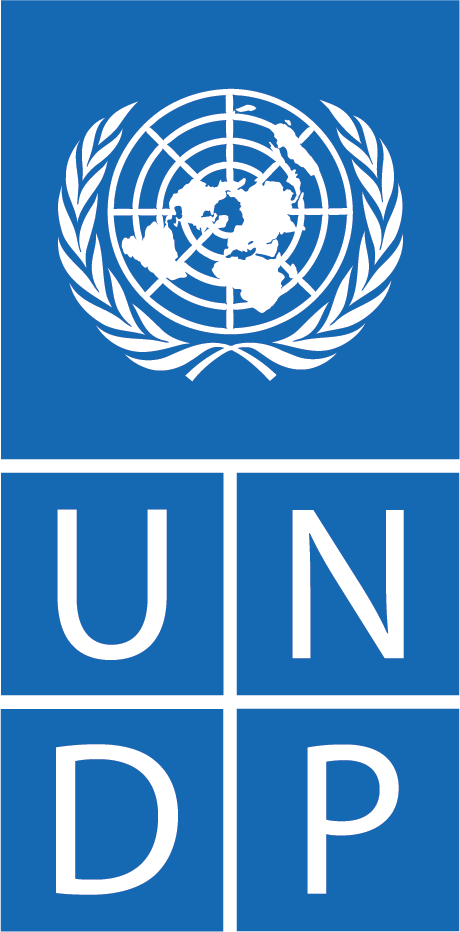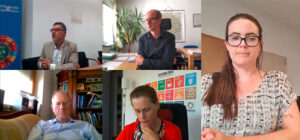
Project Board of the SDG Roll-Out and Private Sector Engagement Project held it’s 3rd Board Meeting.
Members of the Project Board in attendance were:
Mr. Torgny Svenungsson, Head of Development Cooperation, Embassy of Sweden in BiH;
Ms. Ingrid Macdonald, UN Resident Coordinator in BiH;
Mr. Sukhrob Khoshmukhamedov, Deputy Resident Representative in BiH; and
Mr. Miloš Prica, Ambassador at Large, MFA BiH.
The UN Resident Coordinator (RC) Ms. Ingrid Macdonald welcomed the members of the Project Board (PB) and explained the importance of the work that has been done so far, where support in setting foundations for future implementation of the SDGs is not only directed towards public institutions but also to the private sector, which is crucial for achieving the global goals. The RC continued by highlighting how critical the SDGs Project has been for all of the UN work in the country thanks to the strong partnership established with authorities and institutions. She expressed her satisfaction with the response from governmental counterparts taking ownership in the development of the SDG Framework. The RC further thanked the Embassy of Sweden in Bosnia and Herzegovina (BIH) for their flexible approach that allowed the Project to progress despite politically sensitive processes.
The UNDP Deputy Resident Representative, Mr. Sukhrob Khoshmukhamedov, reflected on the Project’s agile approach as well as important efforts that horizontally connect and deliver significant outputs both in the public as well as the private sector.
Ms. Aida Lakovic-Hoso, SDG Roll-Out Project Manager, gave a brief overview of the project structure and progress made regarding the support provided to the institutional partners in relation to the “domestication” of SDGs. She presented key activities and highlighted key deliverables where considerable effort was put on preparation, adaptation, and presentation of the first BIH Voluntary National Review (VNR) at the Hight-Level Political Forum (HLPF) in July 2019. Once the VNR had been presented, the Working Group shifted focus on the participatory design of the SDG Framework in BIH.
The SDG Framework had been finalised and ready for final consultations and submission to adoption procedure in March 2020. However, due to the COVID-19 outbreak, a review and adjustment of the document was requested so as to reflect new priorities and reassess feasibility of achieving the set SDG targets. Once adopted, the SDG Framework will set the overall development directions and serve as a guiding document for governments in their future strategic planning processes. Ms. Lakovic-Hoso continued by informing the PB about mainstreaming of SDGs into development strategies, which can be seen as a follow up activity to the Framework.
Mr. Emir Adžović, SDGs Roll-Out Private Sector Analyst, took over the word by introducing the second component and its progress. He elaborated that the targets were set with two primary aims: (i) to mobilize interest from the private sector for integration of SDGs into business models, and (ii) to enhance capacities of private sector in implementation of UN Agenda 2030.
He continued by briefly presenting key deliverables for the reporting period emphasizing that the indicators set in the Project Document have been exceeded both in terms of the number of companies engaged in the Project activities (575. vs. 500 initially targeted) and increase in companies’ interests in participating in the SDG Business Week and the SDG Business Pioneers Award planned for October 2020.
Moreover, the Project worked on strengthening the knowledge in BIH on integration of sustainable development into business models by providing training of trainers (TOT) and direct training for 100+ companies in the country (75 companies in this reporting cycle).
Importantly, in early 2020 the Project launched the SDG Accelerator for SMEs in BIH, as an innovative approach that provides direct technical assistance to companies in designing new products, services or business models based on SDGs. The ideas accelerated through this activity will demonstrate how business can concretely contribute to addressing most prominent development issues in the country (e.g. air pollution, food production and waste management) utilising green and circular approaches.
Mr. Adžović informed the PB that one of the flagship activities of the Project, the SDG Business Week 2020 had to be postponed for October 2020 due to the COVID-19 pandemic and that the overall approach needed to be tailored to the new reality. The Business Week, to be held 5-9 October 2020, will include an online conference on digital transformation, the SDG Business Pioneer Awards, the SDG Accelerator for SMEs session, an event engaging large number of youth in cooperation with universities and Super Leaders Tribe session, as well as a number of events independently organised by the private sector under the auspices of the SDG Business Week.
The SDG Business Pioneers Award 2020 is expected to be one of the Week’s main events. This award recognizing good business practices has shown a great increase of interest from the private sector (92% increase in applications compared to previous year). The methodology was also adjusted and adapted to international sustainability reporting standards (GRI Standards) resulting in creation of blueprints for annual sustainability reports for all companies that are finalists in the award. Mr. Adzovic reminded the PB about difficulties in delivering B2B opportunities after long discussions with the Business Sweden. As an alternative, the Project supported a regional B2B conference that resulted in 65 B2B meetings among companies led by female entrepreneurs (original indicator in the project document was creation of 10 B2B meetings). Additionally, 5 business cooperation opportunities are expected to emerge from the SDG Accelerator for SMEs by the end of 2020.
The PB had no remarks on the Project’s Annual Report, which is therefore considered as endorsed.




